Technology
Lawsuit claims discrimination by Workday’s hiring tech prevented people over 40 from getting hired
Together, the plaintiffs, all over the age of 40, claim that they submitted hundreds of job applications through Workday and were rejected each time — sometimes within minutes or hours. They blame Workday’s algorithm, which they claim “disproportionately disqualifies individuals over the age of forty (40) from securing gainful employment” when it screens and ranks […]
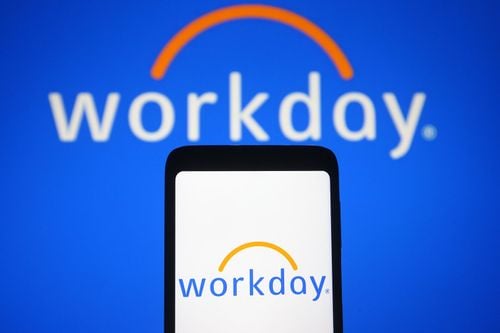
Together, the plaintiffs, all over the age of 40, claim that they submitted hundreds of job applications through Workday and were rejected each time — sometimes within minutes or hours. They blame Workday’s algorithm, which they claim “disproportionately disqualifies individuals over the age of forty (40) from securing gainful employment” when it screens and ranks applicants, court documents state.
Technology
Ativion and NASEF team up on secure K–12 esports access
Ativion has signed a partnership agreement with the Network of Academic and Scholastic Esports Federations (NASEF) to improve access to scholastic esports in K–12 schools. The collaboration will focus on technical integration and training programs designed to help schools join esports leagues while maintaining secure digital environments. The initiative centers on Ativion’s StudentKeeper platform, which […]

Ativion has signed a partnership agreement with the Network of Academic and Scholastic Esports Federations (NASEF) to improve access to scholastic esports in K–12 schools. The collaboration will focus on technical integration and training programs designed to help schools join esports leagues while maintaining secure digital environments.
The initiative centers on Ativion’s StudentKeeper platform, which combines content filtering, classroom management, and digital safety tools. Through the agreement, NASEF will support Ativion in enhancing StudentKeeper to better serve schools managing esports participation on existing networks and devices.
Simplifying secure access to games
Ativion, formerly known as Impero Solutions, provides cybersecurity, remote access, and EdTech tools used in more than 700 U.S. school districts. Its flagship platform, StudentKeeper, is built on ContentKeeper technology and is currently deployed to protect over 10 million students worldwide.
The partnership is intended to help school IT teams streamline access to gaming environments that support learning outcomes, without compromising student privacy or network integrity.
“We are pleased to join with NASEF to make it easier and safer for schools and leagues to offer scholastic esports programs,” says Tobias Hartmann, CEO of Ativion. “Scholastic esports is an all-inclusive sports program available to every student, and it offers many benefits, academically and socially. We look forward to working closely with NASEF to make StudentKeeper a conduit for schools to grow their scholastic esports programs.”
Supporting school esports growth through StudentKeeper
NASEF is a nonprofit that supports global academic esports programs and provides educators with frameworks for integrating competitive gaming into school activities. The organization operates under the Worldwide Scholastic Esports Foundation and works with over 130 international federations.
The new partnership includes co-led promotional efforts and educator training, with a focus on expanding awareness of esports as a learning and engagement tool.
“School leaders and educators are eager to adopt scholastic esports because of its proven positive impacts on student attendance, grades, test scores, and morale. Of course, it is important that they can access key gaming and information sites without compromising the security of the network. NASEF and Ativion are working together to make that safe access a simpler process,” says Claire LaBeaux, Chief Advancement Officer for NASEF.
Technology
DevLand AI launches EdTech platform to support teachers and students with modernized learning — EdTech Innovation Hub
Devland Academy aims to replace “outdated EdTech” with an AI-powered, gamified platform which it says will increase engagement and teach real-world skills such as AI, robotics and finance. “We’re seeing record-level spending in education, but it’s not making it to the classroom,” explains Michael Kessler, CEO at DevLand AI. “We’re not facing a funding problem […]

Devland Academy aims to replace “outdated EdTech” with an AI-powered, gamified platform which it says will increase engagement and teach real-world skills such as AI, robotics and finance.
“We’re seeing record-level spending in education, but it’s not making it to the classroom,” explains Michael Kessler, CEO at DevLand AI. “We’re not facing a funding problem – we’re facing a priorities problem.”
DevLand AI says the new system aims to “enhance teacher agency, not replace it” as it offers lesson-building co-pilots and smart student tracking. It says the system is in full alignment with the Department of Education’s “human-in-the-loop AI systems”.
“We’re giving teachers the power, the tools, and the platform. It’s time to put the soul back in the classroom,” Kessler adds.
DevLand Academy is already available in pilot markets with plans to expand into charter and public school districts in 2025. The company also plans to launch a paid education contributor program and after-school and homeschool partnerships.
“We welcome partnerships, but we’re not waiting for permission,” Kessler says. “We’re already doing what legislators have struggled to do – empower teachers and engage students.”
Technology
The Inside Scoop for Club World Cup 25’ and World Cup 26’ Newest Tech with FIFA’s Johannes Holzmüller
The FIFA Club World Cup 2025 kicked off here in the United States beginning June 14 and runs through July 13. Our own FOX Sports Radio host, reporter and producer Kelsey Nicole Nelson sat down with FIFA’s Director of Innovation Johannes Holzmüller to break down the debut of the technological advances FIFA is using to […]
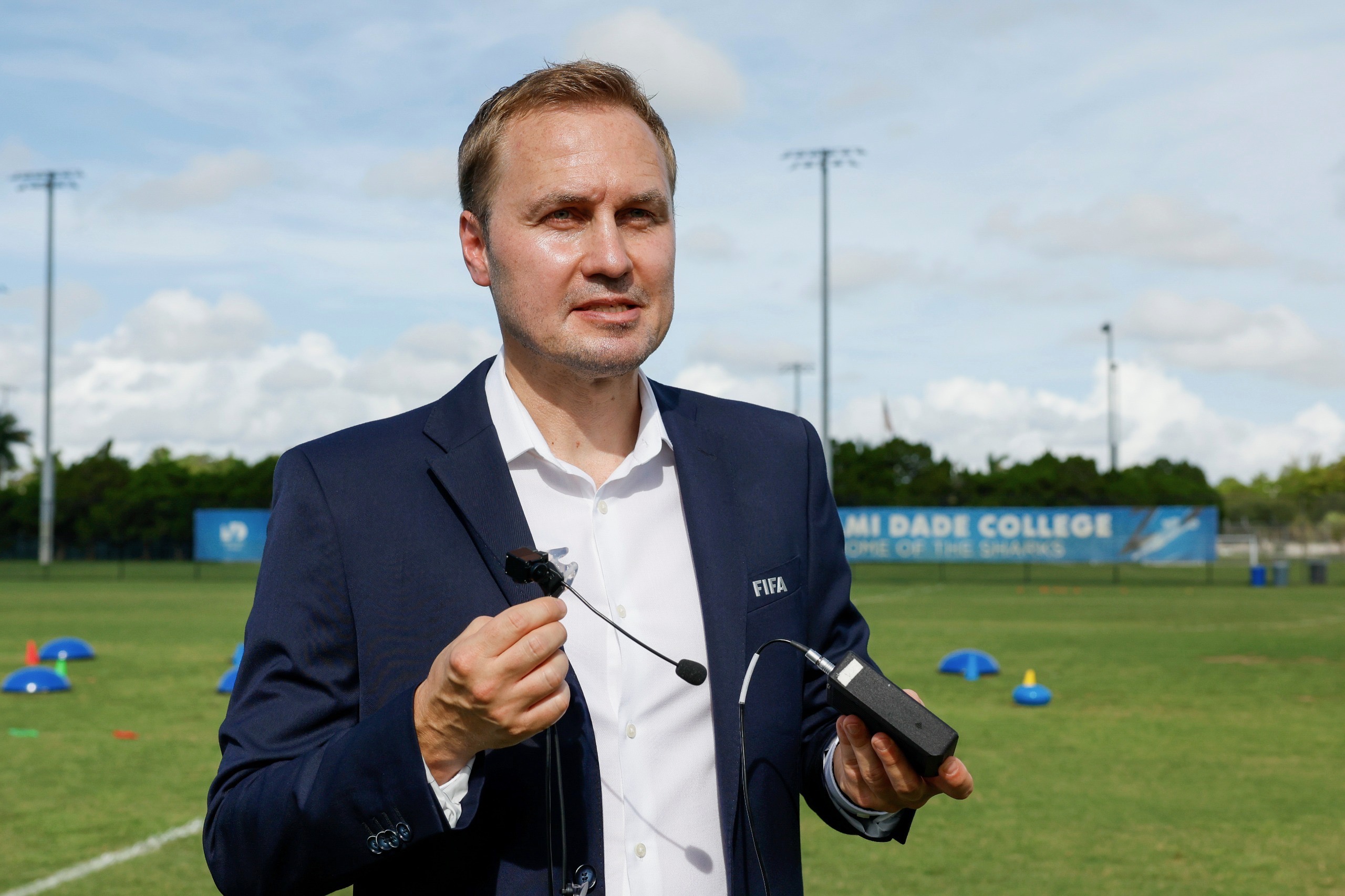
The FIFA Club World Cup 2025 kicked off here in the United States beginning June 14 and runs through July 13. Our own FOX Sports Radio host, reporter and producer Kelsey Nicole Nelson sat down with FIFA’s Director of Innovation Johannes Holzmüller to break down the debut of the technological advances FIFA is using to take the Club World and World Cup to new heights.
Holzmüller, who’s been with FIFA since 2008 and typically works out of Switzerland, was on the ground in Miami, Florida to lead the technological transformation of international soccer. In his role as Director of Innovation, he oversees the entire innovation pipeline — from identifying football stakeholders’ needs to developing and implementing new game-enhancing technologies.
Among the biggest innovations for FIFA Club World Cup 2025 is the use of referee body cameras, a first for the tournament and potential next step of first-person visuals in competitive sports. Holzmüller shared that these cameras will allow fans to “see the game through the eyes of an official,” offering a new level of engagement. Notably, the footage will be shared with the tournament’s exclusive global broadcaster DAZN, and even stadium fans will be able to view the referees’ perspectives live on the jumbotrons.
“This will be amazing to see live,” said Holzmüller. “All the spectators have the same information as the referee. It will really be awesome.”
The conversation shifted to another groundbreaking area — artificial intelligence and real-time player tracking. This year, each stadium will house 16 optimal-tracking cameras, capturing 30 data points per player, 50 times per second.
Additionally, game balls are now equipped with IMU sensors, providing precise data on ball movement.
All this feeds into FIFA’s recent partnership with Hawker Innovations, enabling the automatic generation of key match statistics — like passes completed and ball possession—through AI algorithms. “Everything which was collected manually can now be done automatically,” Holzmüller noted.
The FIFA Club World Cup 2025 is serving as a real-time test lab for these tools, all in preparation for even more expansive implementation at the FIFA World Cup 2026.
Coordinating the tournament across 12 stadiums in the U.S. is no small feat. Holzmüller explained that his team has stationed one innovation expert in each stadium, all feeding into a central operations hub at MetLife Stadium in New Jersey.
“It looks a little bit like a Formula One box,” he said. “People sitting in front of monitors, checking and monitoring all the data. We are watching everything that could impact the game.”
Holzmüller made it clear during a conversation on the use of advanced technology and AI that. the goal of innovation isn’t to replace humans but to support them. He cited the infamous 2010 World Cup incident involving Frank Lampard’s disallowed goal as the catalyst that sparked FIFA’s journey into tech-enhanced officiating.
“We’re not saying we want to replace anyone. We just want to support the referees,” he said.
That philosophy is evident in the rollout of semi-automated offside technology, which uses real-time player and ball data to send alerts to assistant referees within milliseconds.
Compared to other countries, Holzmüller said the U.S. stands out for its already tech-rich stadiums. This presented both advantages and challenges, like finding space to install FIFA’s own cameras among the existing infrastructure. But he welcomed the challenge, calling it an “exciting opportunity” to integrate FIFA’s systems with top-tier American technology.
Finally, Holzmüller emphasized that the innovations deployed in theFIFA Club World Cup 2025 will serve as the blueprint for the FIFA World Cup 2026 and even the 2027 FIFA Women’s World Cup.
“All the learnings and feedback, of course, we then bring to the next tournaments where we try to improve,” he said.
From AI-generated data to referee POV cameras and centralized tech hubs, FIFA is embracing a bold new era. And if Holzmüller has his way, the 2025 Club World Cup won’t just crown the world’s best club — it’ll define the future of football itself.
Technology
How corporates are building India’s sports future
India’s ambition to host the 2036 Olympics is more than a national aspiration—it’s a test of how deeply the country is willing to invest in its sporting foundation. Beyond the stadiums and scoreboards, a quiet but powerful shift is taking place. Corporate India, once a passive donor in the sporting world, is now emerging as […]
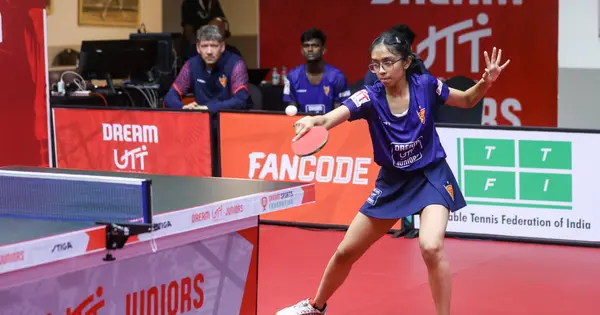
India’s ambition to host the 2036 Olympics is more than a national aspiration—it’s a test of how deeply the country is willing to invest in its sporting foundation. Beyond the stadiums and scoreboards, a quiet but powerful shift is taking place. Corporate India, once a passive donor in the sporting world, is now emerging as an active partner, building the country’s future in sports from the ground up. Neel Shah, CEO of Dream Sports Foundation, has witnessed this transformation firsthand. “Corporate involvement in sports has moved from basic philanthropy to a strategic and structured methodology,” he said in an exclusive interview to WION.
“It’s no longer just CSR—companies are now developing athlete-focused programs with long-term vision.”
The change is visible across India’s sporting ecosystem. From organising grassroots competitions to investing in performance tech, private players are helping plug critical gaps left by underfunded federations and overburdened institutions. Take Dream Sports Foundation’s own efforts as an example.
Through the Dream Sports Championships in football and table tennis, they’ve created a pathway for young athletes to transition from grassroots to elite levels, aligned closely with National Sports Federations (NSFs). It’s not a stand-alone effort but part of a larger movement. As Shah puts it, “The key word is alignment. We need backward and forward linkages rather than working in silos.”
In a country where NSFs often focus on elite athletes and international medals, grassroots development tends to be neglected. That’s where corporate partnerships are proving to be game-changers—both in reach and in impact. Companies are bringing professional management, long-term strategy, and even regional focus to build sustainable sports programs that can uncover and nurture local talent.
The impact goes beyond training grounds. Technology, often driven by corporate investments, is now deeply integrated into India’s sporting journey. “There’s a huge gap in athlete data capture and performance tracking,” Shah says. “With the right tech, we can build effective athlete profiling, enable better coaching, and even enhance fan engagement.”
From AI-driven analytics to virtual fan experiences, tech is helping sports not only grow but also monetise. This opens up new revenue models and deepens spectator involvement, something India’s sports culture has historically lacked outside of cricket. None of this happens in isolation. The government’s initiatives—like Khelo India and TOPS—have laid a strong foundation for talent identification and Olympic preparation. But Shah is clear: public-private partnerships will be crucial to scale these programs.
While the government brings infrastructure and institutional know-how, the private sector brings innovation, agility, and professionalism. The recent push to launch leagues across multiple sports signals a shift in mindset—from occasional success stories to building a holistic sports culture.
“We’re at a juncture of alignment,” Shah says. “With government, corporates, and federations working together, we have a real opportunity to change the way sports are seen and supported in India.”
As India inches closer to its Olympic ambitions, the athletes we celebrate tomorrow may owe their rise not just to coaches and federations—but to a silent but powerful force working behind the scenes: corporate India, finally playing for the long game.
Technology
Advanced Wellness in Dubuque Offers New Technology to Tighten Skin, Heal Injuries, and Reduce Incontinence
This post was contributed by a community member. The views expressed here are the author’s own. DUBUQUE, IOWA June 12, 2024 – Advanced Wellness is one of the first health centers in the area to offer leading-edge, noninvasive technology using muscle activation to build muscle, burn fat, help with muscle injury and recovery, and strengthen […]

This post was contributed by a community member. The views expressed here are the author’s own.
DUBUQUE, IOWA June 12, 2024 – Advanced Wellness is one of the first health centers in the area to offer leading-edge, noninvasive technology using muscle activation to build muscle, burn fat, help with muscle injury and recovery, and strengthen the pelvic floor. Known for offering medical expertise with aesthetic finesse, Advanced Wellness provides primary and acute care, as well as weight loss, and cosmetic enhancements.
“We are excited to expand our practice to a new level offering leading-edge, non-invasive medical devices for treating everything from incontinence to musculoskeletal injuries,” says Nicole M. Schlosser, founder of Advanced Wellness and a nurse practitioner who has served the community for years.
Emsculpt NEO, a needle-free and laser-free technology creates muscle contractions and uses radiofrequency to generate heat. That combination burns 30 percent fat and builds 25 percent muscle in hard-to-treat areas, including the abdomen, buttocks, arms, and thighs. The device forces muscles to experience tens of thousands of contractions — equivalent to 20,000 sit-ups in just 30 minutes.
Find out what’s happening in Across Iowafor free with the latest updates from Patch.
“Emsculpt NEO is excellent for those on a weight loss journey and want to tone and tighten flabby skin, and it also has an application for patients who want to address muscle strength and function or are recovering from an injury,” says Schlosser. Emface, another non-invasive technology uses heat and muscle activation to boost collagen production and tighten facial skin. In just 20 to 30 minutes, it revitalizes the face by stimulating underlying tissue, which reduces fine lines.
Another new technology, EMSELLA, is a gamechanger for the more than 25 million Americans struggling with pelvic floor weakness and incontinence. Patients are fully clothed and sit in the EMSELLA chair, which uses electromagnetic energy to strengthen the pelvic floor by inducing muscle contractions. A 30-minute session is equivalent to doing 11,000 Kegel exercises. EMSELLA has a 98-percent patient satisfaction rate and allows patients to enjoy daily activities without losing bladder control.
Find out what’s happening in Across Iowafor free with the latest updates from Patch.
“These procedures are needle-free, pain-free and there is no bruising,” says Schlosser.
“With no downtime needed, patients go back to work and daily activities after each session.”
Advanced Wellness is located at 2442 Meinen Ct, Dubuque, IA 52002. To learn more
about these leading-edge technologies, call Advanced Wellness at 563-556-6292 or log on to
www.advancedwcdbq.com.
The views expressed in this post are the author’s own. Want to post on Patch?

Technology
Fremont tech firm accused of employing Chinese workers illegally
A Fremont battery company illegally employed Chinese workers, discriminated against non-Chinese employees, and secretly defied an order from the city to shut down its building, a lawsuit claims. Gotion kept a “revolving door” of Chinese citizens coming to work at the lithium-ion battery plant despite lacking visas allowing employment, the lawsuit in Alameda County Superior […]
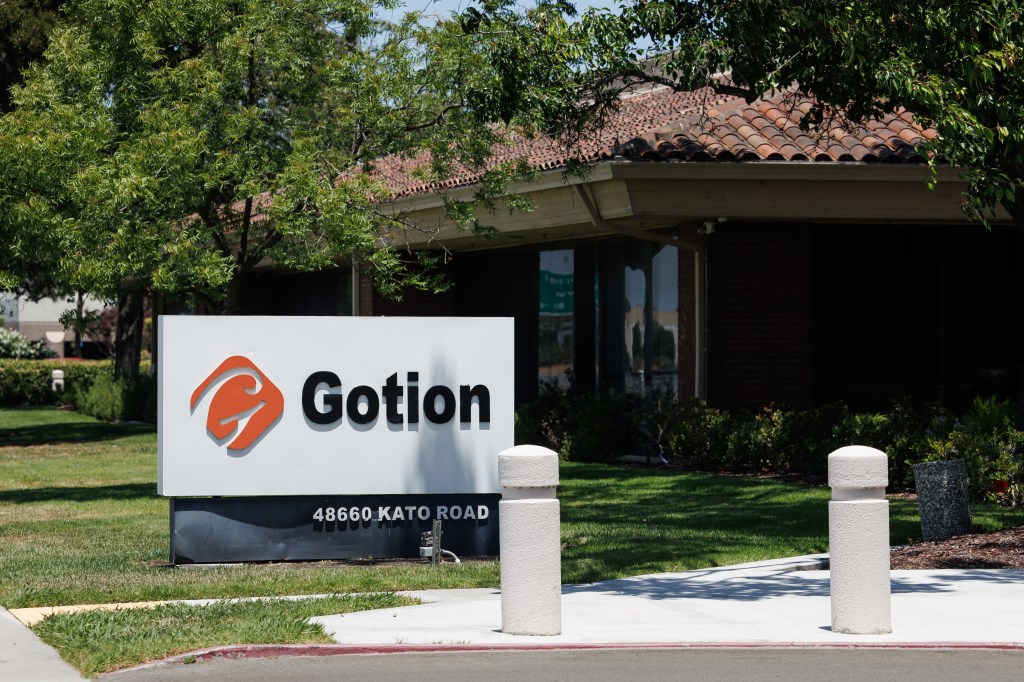
A Fremont battery company illegally employed Chinese workers, discriminated against non-Chinese employees, and secretly defied an order from the city to shut down its building, a lawsuit claims.
Gotion kept a “revolving door” of Chinese citizens coming to work at the lithium-ion battery plant despite lacking visas allowing employment, the lawsuit in Alameda County Superior Court alleged.
The three workers who filed the lawsuit — one U.S. citizen and two with work permits — claimed company officials discriminated against them, and made racist comments toward non-Chinese workers.
The lawsuit by Anirban Das, a U.S. citizen of Indian origin, Atul Deshpande, an Indian citizen with a U.S. work authorization, and Betuel Olivares, a Mexican citizen with a work permit, accused Gotion, its China-based parent firm Gotion High-Tech, and a Gotion supervisor named Chen Li of racial discrimination and unlawful termination. They claim they were forced to quit Gotion after they were stripped of job duties, excluded from meetings, and harassed for complaining about alleged illegalities at the company. They are seeking unspecified damages.
Gotion illegally employed Chinese workers in the country on B-1 visas, the lawsuit filed June 13 claimed. According to U.S. Citizenship and Immigration Services, the visa allows foreign citizens into the U.S. for up to six months per visit, for purposes including consulting with business associates, attending conferences, negotiating contracts, or participating in short-term training. The lawsuit did not allege a specific number of visa violations, but included two screen shots of text messages purportedly showing workers acknowledging work for the company while on the B-1.
The lawsuit also claimed Gotion brought over a Gotion High-Tech lawyer from China who was not authorized to work or practice law in the U.S., and “advised Gotion how to impermissibly violate U.S. immigration laws.”
Gotion and Gotion High-Tech did not immediately respond to requests for comment on the lawsuit. Gotion describes itself on its website as “a fast growing energy solutions company that aims to innovate and create the next generation of battery technology.”

The Fremont battery plant was rife with “illegal practices,” the lawsuit claimed. The building lacked proper permits and safety features including fire-protection systems, the lawsuit said. The City of Fremont shut the facility down over the purported lack of proper permits, according to the lawsuit, which included a photo of a red “do not enter or occupy” notice on a window, dated March 20, 2024 and citing “work without permits.”

Gotion, however, “illegally covered up the shutdown notice and continued to have employees work in the office notwithstanding the safety risks,” the lawsuit claimed. A photo included in the lawsuit showed what appears to be pages from a Gotion brochure taped to a window.
Not long afterward, city officials shut the plant down again over improperly stored hazardous batteries, the lawsuit alleged.
The City of Fremont did not immediately answer questions about alleged violations by Gotion.
The three plaintiffs all complained to Gotion about the alleged illegal practices, the lawsuit said.
Das was hired in July 2023 as senior director of industrialization for Gotion and Gotion High-Tech, according to the lawsuit. Das oversaw Deshpande, a senior program manager hired a few months earlier than Das, and Olivares, an engineering manager brought on several months later, the lawsuit said.
Gotion officials mistakenly believed Olivares was of Indian origin because of his brown skin, and referred to him, Das and Deshpande as “foreigners” because they were not from China, the lawsuit alleged.
-
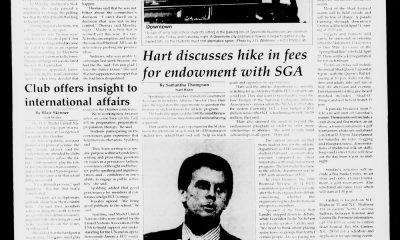
 High School Sports3 weeks ago
High School Sports3 weeks agoParents Speak Out As Trans Pitcher Throws Shutout In MN State Quarterfinals
-

 Professional Sports3 weeks ago
Professional Sports3 weeks ago'I asked Anderson privately'… UFC legend retells secret sparring session between Jon Jones …
-

 Health3 weeks ago
Health3 weeks agoOregon track star wages legal battle against trans athlete policy after medal ceremony protest
-

 Professional Sports3 weeks ago
Professional Sports3 weeks agoUFC 316 star storms out of Media Day when asked about bitter feud with Rampage Jackson
-

 Motorsports1 week ago
Motorsports1 week agoNASCAR Weekend Preview: Autódromo Hermanos Rodríguez
-

 College Sports3 weeks ago
College Sports3 weeks agoOKC’s Mark Daigneault knows what it takes to win championships. His wife has won a ton of them
-
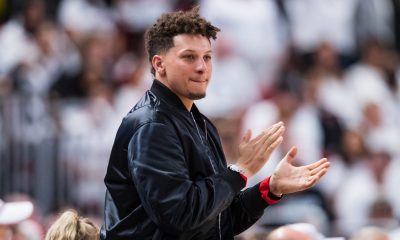
 NIL2 weeks ago
NIL2 weeks agoPatrick Mahomes in OKC for WCWS, praises NiJaree Canady and Texas Tech
-

 College Sports3 weeks ago
College Sports3 weeks agoFull 2025 Women’s College World Series Finals Schedule
-

 NIL2 weeks ago
NIL2 weeks agoGreg Sankey fires jab at obstruction rule after controversial WCWS call in Texas vs. Texas Tech
-

 Motorsports3 weeks ago
Motorsports3 weeks agoCorey LaJoie to make nine NASCAR Truck Series starts with Spire Motorsports































